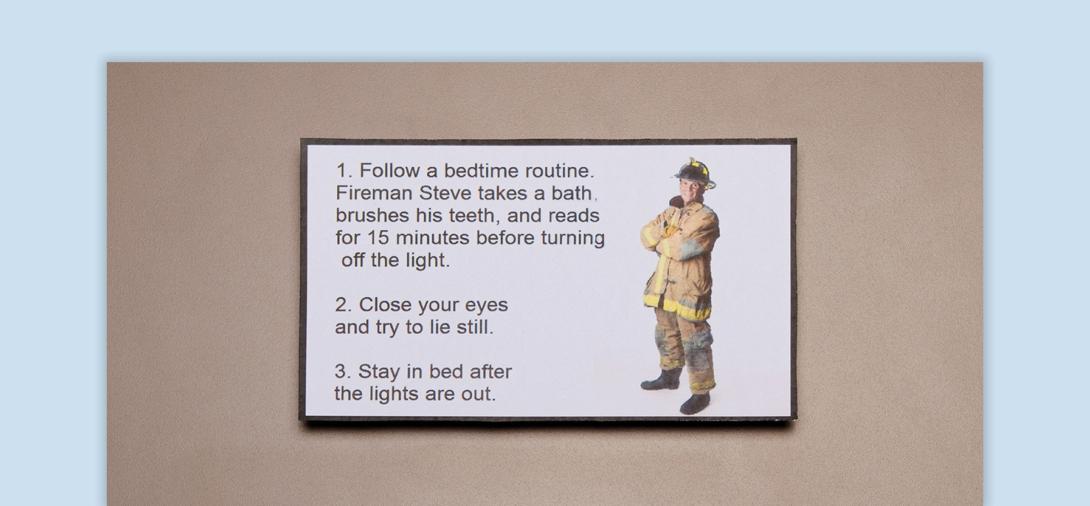Power Card

A visual that uses a student’s interest as motivation to teach a skill or encourage a behavior.
When to use:
- Use when a student has difficulty with routines, behavioral expectations, understanding social language, or understanding unspoken social ‘rules’.
- Use when a student struggles to make a choice between two or more items or has difficulty understanding a cause-and-effect relationship. Use to support the generalization of skills.
- Use when a student seems to lack motivation; yet has a well-developed area of interest.
How to use:
- Choose a behavior or skill to teach or strengthen through use of a power card. Power cards can support behavioral, social, academic, daily living, and classroom skills.
- Use a student’s special interest to choose characters or items to include in a social narrative and on a power card.
- Write and illustrate a brief social narrative to model how a character would use the behavior or skill in a situation similar to when it is needed in the student’s daily life.
- Create the power card. Make a card that shows a picture or illustration of the student’s special interest and a few simple statements that recall the social narrative. The power card acts as a “reminder” about how or when to use the skill shown in the social narrative.
- Review the power card with the student just before the skill or behavior may be needed.
- Give the student feedback about how well they used the skill or behavior.
Tips:
- A power card is typically paired with a social narrative.
- Power cards are most effective for students with mild to moderate cognitive disabilities. For students with complex academic and communication support needs, direct social skills training and differential reinforcement may be more effective tools for providing social and classroom skills instruction.
- Social narratives and power cards are a form of skill or behavior modeling: use a power card to show what a student SHOULD do, and not what a student SHOULD NOT do.
- Provide frequent real-life opportunities for the student to practice skills learned through the power card strategy, including role playing.




